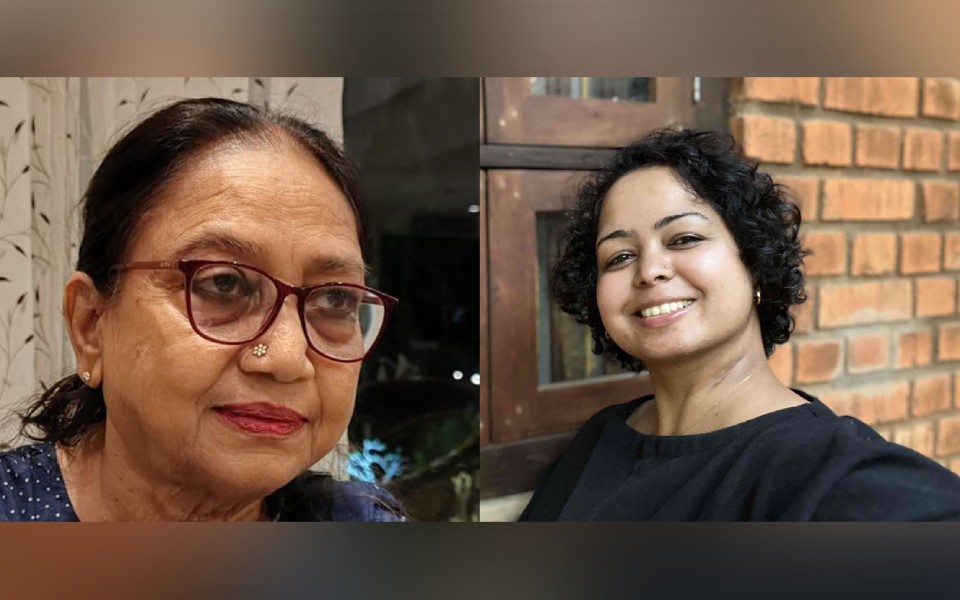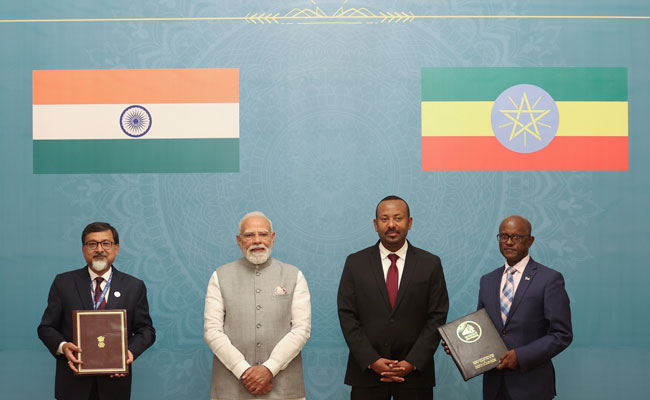London, Feb 25 (PTI): Karnataka-based writer, activist and lawyer Banu Mushtaq’s short story collection ‘Heart Lamp’, translated from Kannada to English by Deepa Bhasthi, was on Tuesday longlisted for the International Booker Prize 2025 in London.
Chosen among 13 worldwide titles, Mushtaq’s work appealed to the judges for its “witty, vivid, colloquial, moving and excoriating” style of capturing portraits of family and community tensions. It marks the first time a Kannada title has made it to the longlist of the GBP 50,000 literary prize – divided between author and translator.
“Exploring the lives of those often on the periphery of society, these vivid stories hold immense emotional and moral weight,” the judges said of Mushtaq and Bhasthi's ‘Heart Lamp’.
Its 12 stories set in the Muslim communities of southern India and published originally between 1990 and 2023 will now go head-to-head with authors from across the world. The annual prize celebrates the best works of long-form fiction or collections of short stories translated into English and published in the UK and/or Ireland between May 2024 and April 2025.
The six books shortlisted from the longlist for this year’s prize will be announced on April 8, with each shortlisted title awarded a prize of GBP 5,000 – shared between author and translator. The announcement of the 2025 winning title will take place May 20 at a ceremony at Tate Modern in London, with the winning author receiving GBP 25,000 and the translator or translators dividing the other half of GBP 25,000.
In 2022, Geetanjali Shree and translator Daisy Rockwell won the coveted prize for the first-ever Hindi novel ‘Tomb of Sand’, with Perumal Murugan’s Tamil novel ‘Pyre’, translated into English by Aniruddhan Vasudevan making it to the longlist in 2023.
“Translated fiction is not an elite or rarefied cultural space requiring expert knowledge; it is the exact opposite. It is stories of every conceivable kind from everywhere, for everyone. It is a miraculous way in which we might meet one another in all our strangeness and sameness, and defy the borders erected between us,” said Max Porter, chair of the judging panel for International Booker Prize 2025.
“In these books people are sharing strategies for survival; they are cheating, lying, joking and innovating. Some people are no longer of this earth, or they are sending visions from the future or from parallel universes. These books bring us into the agony of family, workplace or nation-state politics, the near-spiritual secrecy of friendship, the inner architecture of erotic feeling, the banality of capitalism and the agitations of faith,” he said.
The other titles on the longlist include: ‘The Book of Disappearance’ by Ibtisam Azem, translated from Arabic by Sinan Antoon; ‘On the Calculation of Volume I’ by Solvej Balle, translated from Danish by Barbara J. Haveland; ‘There’s a Monster Behind the Door’ by Gaëlle Bélem, translated from French by Karen Fleetwood and Laëtitia Saint-Loubert; ‘Solenoid’ by Mircea Cărtărescu, translated from Romanian by Sean Cotter;
‘Reservoir Bitches’ by Dahlia de la Cerda, translated from Spanish by Heather Cleary and Julia Sanches; ‘Small Boat’ by Vincent Delecroix, translated from French by Helen Stevenson; ‘Hunchback’ by Saou Ichikawa, translated from Japanese by Polly Barton;
‘Under the Eye of the Big Bird’ by Hiromi Kawakami, translated from Japanese by Asa Yoneda; ‘Eurotrash’ by Christian Kracht, translated from German by Daniel Bowles; ‘Perfection’ by Vincenzo Latronico, translated from Italian by Sophie Hughes; ‘On a Woman’s Madness’ by Astrid Roemer, translated from Dutch by Lucy Scott; and ‘A Leopard-Skin Hat’ by Anne Serre, translated from French by Mark Hutchinson.
Fiammetta Rocco, Administrator of the International Booker Prize, said: “The result is a longlist for anyone interested in what it means to be human, in what our planet looks like through the eyes of others, and in the power of fiction to challenge our assumptions and prejudices, and to bring different cultures together.
“Throughout, the impact that all these books have had on the judging panel is testament to the care and effort that goes into bringing them to the attention of English-language readers. The International Booker Prize offers a feast of fiction from around the world. Its work is more urgent than ever.”
Let the Truth be known. If you read VB and like VB, please be a VB Supporter and Help us deliver the Truth to one and all.
Bengaluru: India Post has launched its first Gen Z Post Office in Bengaluru at the Acharya Institute of Technology, aiming to attract college students in an age dominated by emails, WhatsApp and social media.
According to a report published by The New Indian Express, Harsha MR, Assistant Superintendent, Bengaluru West Division Post Office, said the new post office, officially named Gen Z Post Office, Achit Nagar, Bengaluru (PIN 560107), will be inaugurated on Wednesday. It has been creatively designed and painted with graffiti by students of the institute to make it more appealing to young people.
He said “In the Gen Z post office, we have introduced two categories in one category, students can come and work with our staff and get good experience, know more about the schemes and services available under India Post”. “In another category, they can work with us part time and they will be provided with incentives but it is still in the pipeline and yet to be implemented.”
Harsha said the initiative is meant to bring postal services closer to students, researchers and the campus community. Similar Gen Z post offices are also planned at GITAM University and the National Law School of India University.
According to the report, they can also use the services to communicate with students across the campuses also. Unlike other post offices, it is a blend of physical and digital world giving students WIFI services, air-conditioned rooms and even coffee vending machines which Gen Z prefer to use.
Harsha said student representatives who will be in-charge of the campus work at post offices within the campus are yet to be decided.
“A roster will be prepared and different students will be given tasks to serve at various service counters. A senior post master will be in charge of Gen Z post offices and he will guide the students,” TNIE quoted Harsha as saying.
India Post officials allegedly said similar Gen Z post offices will soon be launched in Bengaluru North, South and East divisions as part of a broader effort to connect with younger generations.





